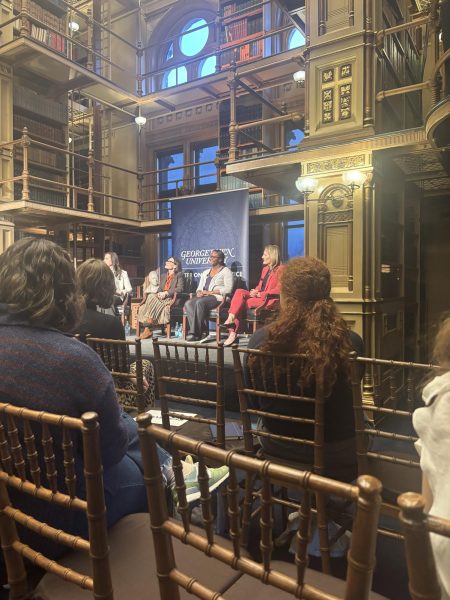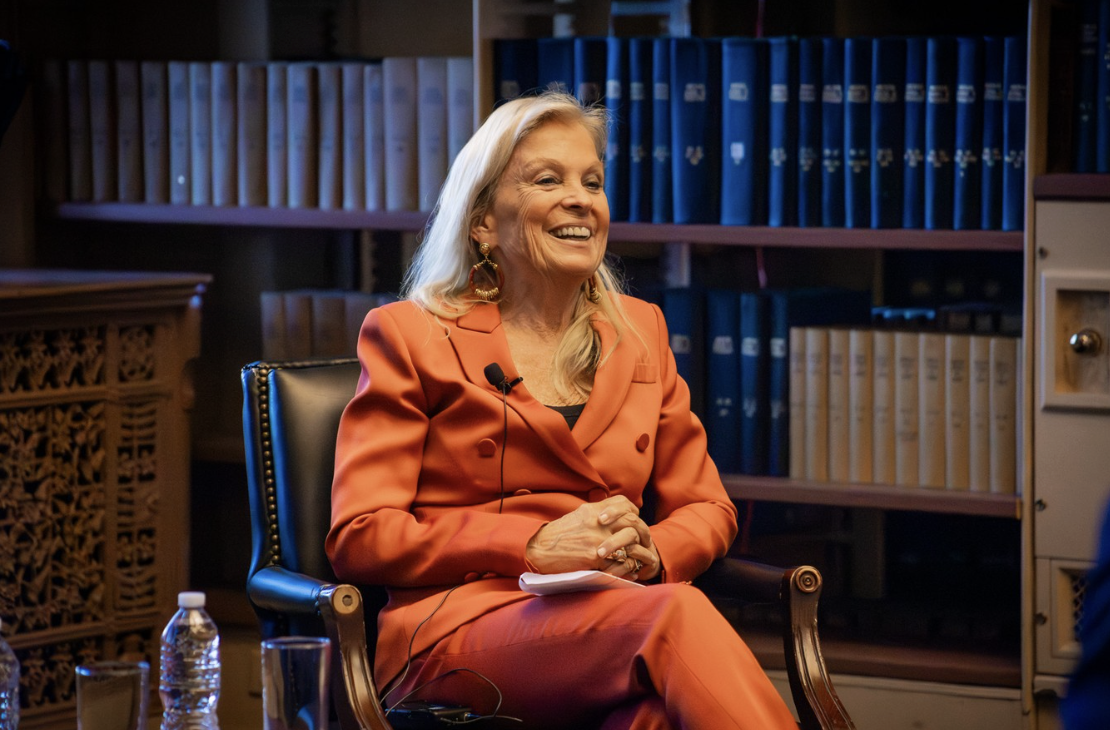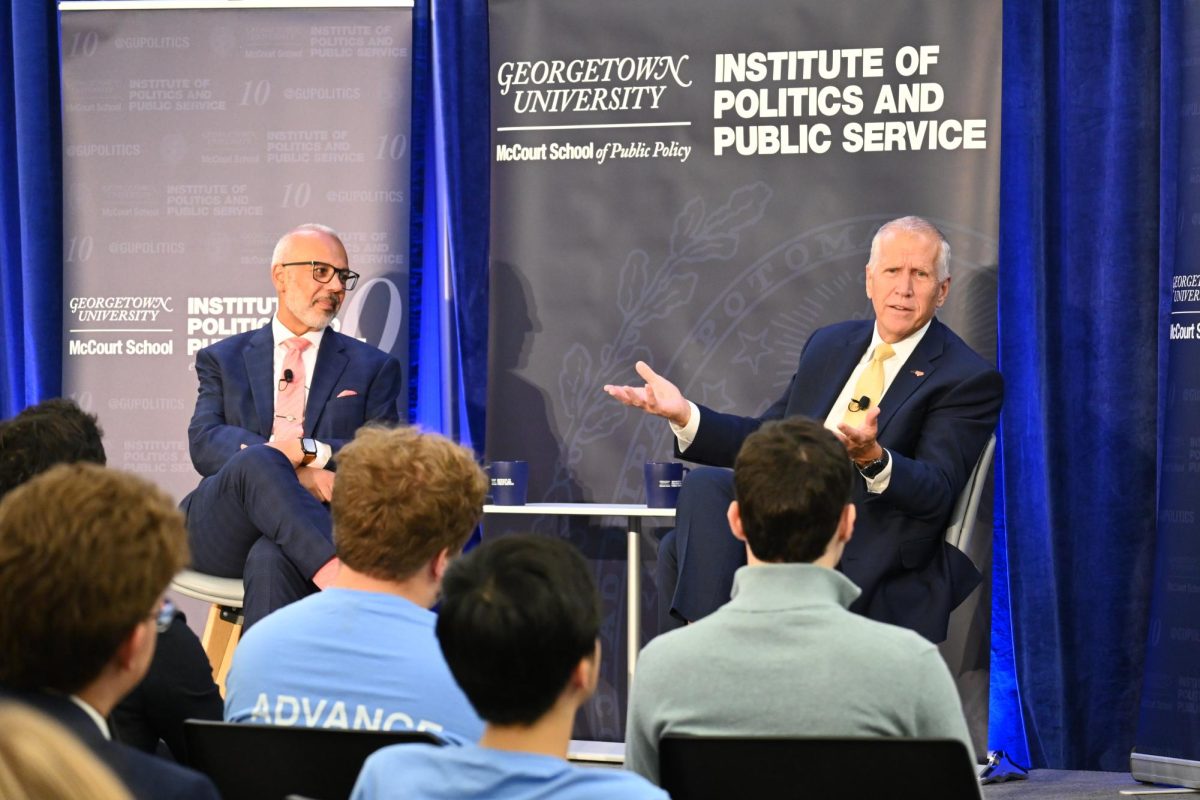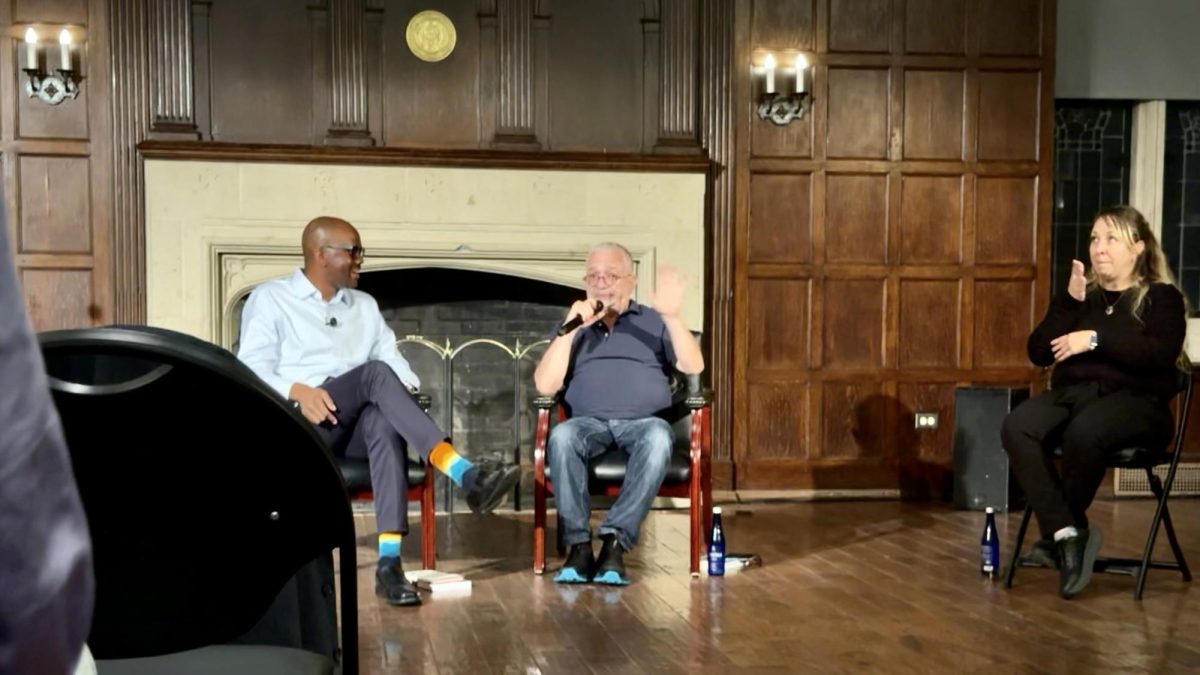A panel of experts urged the cultivation of women’s spaces and profiled activism in the midst of the current political moment at a Georgetown University event Mar. 25.
The panel focused on how women can show resilience and determination in the face of efforts to minimize their voices and included Peggy Flanagan, the lieutenant governor of Minnesota; Cynthia Miller-Idriss, a professor in the School of Public Affairs and the School of Education at American University; and Jamil S. Scott, an assistant professor of political science in the government department at Georgetown. The Georgetown University Center on Faith and Justice (CFJ), an organization that focuses on uprooting racism and poverty, hosted the event in Riggs Library.
Flanagan, who is Native American, said that women and people of color are needed in politics because of the perspectives they bring to the table.
“Our democracy functions best when it accurately reflects the people it seems to represent, and so my job is to make sure I’m holding the door wide open for other people who can come after me,” Flanagan said at the event. “However, it’s also knowing that the system has been working exactly the way that it’s supposed to work by the folks who set it up, and we can disrupt the system and get better outcomes when we have people with different lived experiences who are part of it.”
Flanagan added that her experience as a member of the White Earth Band of Ojibwe, a Native American band in Minnesota, informs her work in politics and activism.
“We hear a lot about ‘those people.’ I am those people, and those people should have a seat at the table to help co-create our future and what that looks like,” Flanagan said. “So in this moment many of these programs that have been there to lift people into the middle class and out of poverty are jeopardized. These programs are important safety net programs and important investments in community, stability, and the future of our state and country.”
Scott said women have been able to organize change in the legislature through open and constructive dialogue between groups who want different things.
“I’m saying that to say that from a legislative perspective, some of the women who’ve been most effective at the state level are the ones who’ve been able to build coalitions with other people and people that you might not expect based on the way that they talk about an issue or the way that the bill is structured,” Scott said at the event. “They’re thinking about not just their coalition of the Women’s Caucus, but they’re thinking about the Black Caucus and how that might impact the Latino Caucus.”
Scott added that powerful change can be brought about when people from different spaces come together.

“They’re building partners across spaces to get other folks on board when the issue seems one-sided, and it’s powerful to see people who are like, ‘I can see how you can benefit, and I’m gonna bring you into a conversation. I’m going to shape this legislation in a way that seems feasible to you,’” Scott said.
Miller-Idriss said that in this current cultural moment, it’s important to hold on to faith and values as guiding principles for action.
“It’s really important to lead with your values and to remember values,” Miller-Idriss said “That leads to this question about faith, and to remember what you stand for. Wherever you are — if you’re starting out a career, or if you’re in a leadership role — to not hurry up to obey something that goes against your values, and to try to keep standing up for the things that matter.”
Scott said standing up for what you believe in can take many different forms besides political donations.
“There’s this idea that you have to give a lot of money or give money at all, but I think I want to challenge you all to think about what it looks like to give your time in some capacity,” Scott said. “What does it look like to share, help serve in some capacity, even if it’s just an hour a week, or just thinking beyond ourselves in this moment where it can be really easy to turn in, because there are communities that don’t have the option to turn in, they have to keep pushing and looking outward.”
Flanagan said being in community and supporting one another through difficult times is a powerful way to cultivate strength, empathy, and a shared sense of purpose.
“I think it’s important to express that we have seen incredibly difficult times before, and have come out on the other side, and that’s because we’ve taken care of each other, we’ve linked arms, we’ve leaned hard to community and to kinship, and we are in one of those moments where we need to do that again,” Flanagan said. “For so many women, that has been just how we have lived our entire lives, in existence, continuing to show up and do the work that needs to be done.”







